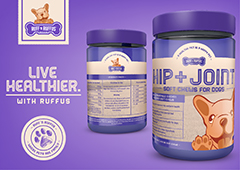CANINE FUN IN THE SUN
Tips For A Pet-Safe Summer In The City (& Country)
By Dr. Brett Shorenstein, VMD
Summer is made for dogs…and for the people who love them. So, whether you’re off on a day trip to the Dog Beach or just a stroll through the city, here are a few tips to help keep your pet protected. First, you’ll want to exercise your pet during the hottest days when it’s more relaxed in the morning or evening.

However, you should also know the warning signs of heat exhaustion: excessive panting or drooling, anxious behavior, unsteadiness, and abnormal gum and tongue color. This can quickly advance to heat stroke with vomiting, diarrhea, seizures, and collapse. If your pet exhibits any of these symptoms, you’ll need to call a vet.
Asphalt can be harsh on your pet’s paws, and it doesn’t take extreme temperatures to turn sidewalks and streets into frying pans. A straightforward way to check is to put your palm where you plan to walk. If it’s too hot for your hand, it’s too hot for your pet.
PET-SAFE CHOICES
You may have heard that sunscreen is suitable for light-colored or short-haired pets and protects ears and noses. There are pet-safe choices that do offer some protection. Don’t use sunscreens for humans without reading the label carefully, be aware that your pet can ingest such typical ingredients as zinc oxide and salicylates when they lick themselves. Limiting their time in the direct sun is better so find shady spots at the dog run and sporting shade with a large umbrella.

Are you escaping the concrete jungle for a hike at Inwood Hill or the Hudson Valley? Even if your pet is on a flea and ticks preventative, you’ll want to check for these little critters after being outdoors. Unfortunately, our country region is at considerable risk for tick-borne illnesses, including Lyme disease—and ticks can quickly jump from pets to people.
Not to be a buzzkill if your dog loves to play in the water, but blue-green algae (cyanobacteria) is a danger later in the summer, as it can kill pets. Never let your pet drink from a lake, pond, or river, and make sure you can identify an algae bloom: foamy, scummy, thick-looking water with greenish or brownish-red cells suspended in the water.
Your favorite vet is an excellent resource for info about keeping your pet safe in summer, so don’t hesitate to give them a call if you have questions. Then go leash up, head out, and have some fun!
For more information about Dr. Brett Shorenstein and Abingdon Square Veterinary Clinic, call 212-242-9169 or email asvc130@gmail.com











